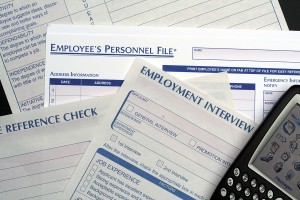I often read status updates on sites like Facebook, LinkedIn and Twitter reflecting my friends’ feeling about their work, bosses, and co-workers. It is worth a reminder that such postings potentially can be used against you in an employment law case, such as a discrimination, harassment, or retaliation lawsuit. If your profile is public, or if one of your supervisors is your “friend,” your employer will have easy access to that information. But your employer might be able to obtain the information in a lawsuit even if it was originally visible only to individuals who you have accepted as “contacts” or “friends.”
For example, one of my clients recently received the following request from a large law firm that represents employers:
Produce a copy of the contents of Plaintiff’s account on any social media websites, such as Facebook, MySpace, Twitter, LinkedIn, etc.
I intend to object to this request because it is nothing more than a fishing expedition, and the employer is seeking information that is not relevant to the case. But there are many ways in which your posts may be relevant to an employment law matter. For example, if you are having a good day at work and post “I love my job,” that could be used against you to prove you did not experience a hostile work environment, and therefore harm your harassment claim. On the other hand, if you express negative feelings about your boss, co-workers, clients, or customers, then you could be accused of disparaging your employer, which could violate an internal company policy, your employment contract, or your duty of loyalty to your employer.

It is important to realize that, unless you delete it, all of the data you have posted on Facebook, including wall posts, photos with comments, videos, private messages, friend lists and other user profile content, remains accessible in an archive that is fairly easy to retrieve. You can download it from the Account Settings menu. Thus, even very old posts could hurt you if the employment relationship goes bad. Be very careful about what information you post about your job on social networking websites. At the very least, you should not post anything about your current or former employer that you would not want the employer to read.
However, once you are considering filing a lawsuit, you cannot erase your archive because you would be destroying potential evidence in your case, and you could be penalized. For example, in Lester v. Allied Concrete, a plaintiff who prevailed in a wrongful death case was ordered to pay a $180,000 fine for deleting his Facebook profile.
Continue reading
 During an employment lawsuit, the employer and employee engage in a process called discovery. Discovery involves an exchange of information between the parties, including requests for documents, written questions called interrogatories, and oral questions at a deposition. In addition, either side has the right to issue subpoenas requiring non-parties to provide relevant documents and information. The purpose of discovery is to allow each side to gather evidence to support its case and evaluate the other side’s position.
During an employment lawsuit, the employer and employee engage in a process called discovery. Discovery involves an exchange of information between the parties, including requests for documents, written questions called interrogatories, and oral questions at a deposition. In addition, either side has the right to issue subpoenas requiring non-parties to provide relevant documents and information. The purpose of discovery is to allow each side to gather evidence to support its case and evaluate the other side’s position. New Jersey Employment Lawyer Blog
New Jersey Employment Lawyer Blog



